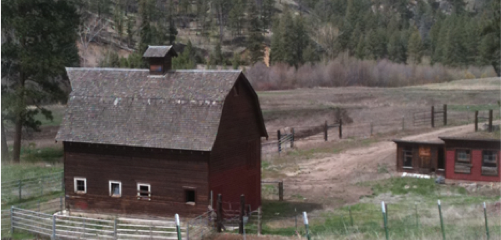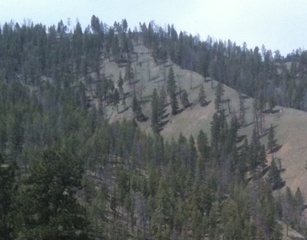Idaho and Montana Grant Program
We support Rural Education, Rural Human/Social Services, Rural Conservation and Preservation, Rural Health, and Rural Arts and Humanities projects. Read our Overall Guidelines.

2024 Grants: Letter of Inquiry Process
In its Idaho and Montana Grant Program, The Steele-Reese Foundation makes grants only to federally tax-exempt entities for work in rural Idaho and Montana communities, and in Native nations with whom we share this geography. We encourage potential applicants to review the What We Fund section, the , and to contact Linda Tracy, Western Director, to discuss your proposal before submitting a Letter of Inquiry (LOI) for the Foundation’s consideration. We welcome you to our half-hour open house information sessions via Zoom on December 18, 2023, January 8 or January 11, 2024 to answer your questions about the LOI and the grant cycle. Please download the 2024 Letter of Inquiry Information Packet for date, time and Zoom link details.
The Foundation will only consider requests that benefit rural communities in Idaho, Montana, and in Native nations with whom we share this geography. We will not consider requests for work benefiting urban or suburban areas, or those more rural areas immediately adjacent, or in close proximity, to an urbanized area. In Idaho, urban areas include the Boise-Nampa Metropolitan Statistical Area, Idaho Falls, Pocatello, Coeur d’Alene, Twin Falls, Lewiston, Post Falls, Rexburg, Moscow, and their suburbs. In Montana, urban areas include Billings, Missoula, Great Falls, Bozeman, Butte, Helena, Kalispell, and their suburbs.
We give priority to organizations based in rural communities who are working in rural areas, including Native-led organizations. We will also consider inquiries from organizations based in urban areas for proposed work in a rural community with whom they can demonstrate an existing high level of engagement.
For funding in Idaho and Montana communities, and Native nations located within these states, the application process begins with a Letter of Inquiry (LOI) that must be submitted via the Foundation’s online grant portal. To establish an account, or to access an existing account, click here. You may create an account at any time. Please have contact information, an email address, and your organization’s federal tax ID number available when you register. If you have registered previously, we encourage you to log back in to your existing account to submit an LOI.
We will open the LOI process on January 15, 2024. We will close it once we have received 100 LOIs or on January 31, 2024, whichever occurs first. To track the number of LOIs received to date, log on to your account and click the Apply section.
In the highly unlikely event that we receive 100 LOIs by January 22, anyone who has begun one online by then will be allowed to submit it within three business days. You must log on to your account, complete the online LOI form, and submit it for your inquiry to be counted among the first 100 we receive. We recommend that you save your work frequently while completing an LOI on our grant portal.
The 2024 Letter of Inquiry Information Packet allows applicants to review questions prior to filling out the form online and includes full instructions and answers to frequently asked questions. You may use this packet as a tool to prepare your answers offline to paste into the online LOI form. In the interest of transparency about the grant process, it also includes a list of application questions we will ask of those we later invite to submit full applications, and the final report questions we will ask in the summer of 2025 of those who receive grants.
By March 1, 2024, we will respond to all organizations that submit an LOI to either invite you to complete a full application by April 1, 2024, or to let you know that we are unable to further consider your proposal this year. Sadly, the amount of available grant funds limits the number of applications we are able to invite and the number of them we are able to fund. An LOI that does not result in an invitation for a full application, or an application that does not receive funding, is in no way a reflection of the value of an organization or its work. After promptly signing grant agreements and providing account information, organizations that receive grants will can expect funds to be wired into their accounts by late August.
To explore the possible fit between your priorities and what we are able to consider supporting, please contact Linda Tracy, Western Director, between August and December. If you have any questions or difficulties, we encourage you to contact her well ahead of the LOI deadline.

